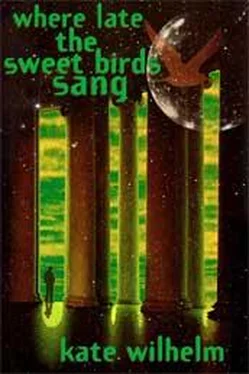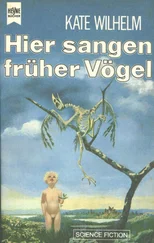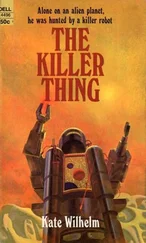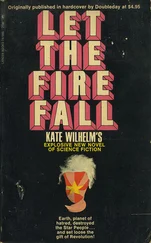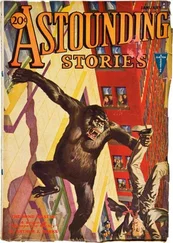Mark nodded, but didn’t look at Barry again. “All right,” he said sullenly.
The party had started already when Mark entered the auditorium. They were dancing at the far end, and between him and the dancers a group of girls stood whispering. They turned to look at him, and one of them left the group. There was giggling behind her, and she motioned her sisters to stop, but the giggling continued.
“Hello, Mark,” she said. “I’m Susan.”
Before he realized what she was doing she had slipped off her bracelet and was trying to put it over his hand. There were six little bows on the bracelet.
“No,” Mark said hurriedly, and jerked away. “I . . . No. I’m sorry.” He backed up a step, turned and ran, and the giggling started again, louder than before.
He ran to the dock and stood looking at the black water. He shouldn’t have run. Susan and her sisters were seventeen, maybe even a little older. In one night they would have taught him everything, he thought bitterly, and he had turned and run. The music grew louder; soon they would eat and then leave in couples, in groups, everyone but Mark, and the children too young for the mat play. He thought of Susan and her sisters and he was first hot, then cold, then flushing hot again.
“Mark?”
He stiffened. They wouldn’t have followed him, he thought in panic. He whirled around.
“It’s Rose,” she said. “I won’t give you my bracelet unless you want it.”
She came closer, and he turned his back and pretended to be looking at something in the river, afraid she would be able to see him in the dark, see the redness he could feel pounding in his neck and cheeks, sense his wet palms. Rose, he thought, his age, one of the girls he had trained in the woods. For him to blush and become bashful before her was more intolerable than running from Susan had been.
“I’m busy,” he said.
“I know. I saw you before. It’s all right. They shouldn’t have done that, not all of them together. We all told them not to.”
He didn’t reply, and she moved to his side. “There’s nothing to see, is there?”
“No. You’ll get cold out here.”
“You will too.”
“What do you want?”
“Nothing. Next summer I’ll be old enough to go to Washington or Philadelphia.”
He turned angrily. “I’m going to my room.”
“Why did I make you mad? Don’t you want me to go to Washington? Don’t you like me?”
“Yes. I’m going now.”
She put her hand on his arm and he stopped; he felt he couldn’t move. “May I go to your room with you?” she asked, and now she sounded like the girl who had asked in the woods if the mushrooms were all dangerous, if the things in the trees had told him how to find his way, if he really could become invisible if he wanted to.
“You’ll go back to your sisters and laugh at me like Susan did,” he said.
“No!” she whispered. “Never! Susan wasn’t laughing at you. They were scared, that’s why they were all so nervous. Susan was most scared of all because she was picked to put the bracelet on you. They weren’t laughing at you.”
As she spoke she released his arm and took a step back from him, then another. Now he could see the pale blur of her face. She was shaking her head as she talked.
“Scared? What do you mean?”
“You can do things no one else can do,” she said, still speaking very softly, almost in a whisper. “You can make things no one ever saw, and you can tell stories no one ever heard, and you can disappear and travel through the woods like the wind. You’re not like the other boys. Not like our elders. Not like anyone else. And we know you don’t like any of us because you never choose anyone to lie with.”
“Why did you come after me if you’re so afraid of me?”
“I don’t know. I saw you run and . . . I don’t know.” He felt the hot flush race through him again, and he began to walk. “If you want to go with me, I don’t care,” he said roughly, not looking back. “I’m going to my room now.” He could not hear her footsteps for the pounding in his ears. He walked swiftly, making a wide berth of the auditorium, and he knew she was running to keep up. He led her around the hospital, not wanting to walk down the brightly lighted corridor with her at his heels. At the far end he opened the door and glanced inside before he entered. He let the door go and almost ran to his room, and he heard her quick footsteps as she came after him.
“What are you doing?” she asked at the doorway.
“I’m putting the cover over the window,” he said, and his voice sounded angry even to him. “So no one can look at us. I put it there a lot.”
“But why?”
He tried not to look at her when he climbed down from the chair, but again and again he found himself watching. She was unwinding a long sash that had gone around her neck, criss-crossed at her breasts, and circled her waist several times. The sash was violet, almost the color of her eyes. Her hair was a pale brown. He remembered that during the summer it had been blond. There were freckles across her nose, on her arms.
She finished with the sash and now lifted her tunic, and with one motion took it off. Suddenly Mark’s fingers seemed to come to life and without his willing it they began to pull off his tunic.
Later she said she had to go, and he said not yet, and they dozed with his arms tight about her. When she again said she had to go, he woke up completely. “Not yet,” he said. When he woke the second time it was daylight and she was pulling on her tunic.
“You have to come back,” Mark said. “Tonight, after dinner. Will you?”
“All right.”
“Promise. You won’t forget?”
“I won’t forget. I promise.”
He watched her wind the sash, and when she was gone he reached out and yanked the cover from the window and looked for her. He didn’t see her; she must have gone through the building, out the other end. He rolled over and fell asleep again.
And now, Mark thought, he was happy. The nightmares were gone, the sudden flashes of terror that he couldn’t explain stopped sweeping over him. The mysteries had been answered, and he knew what the books meant when the authors spoke of finding happiness, as if it were a thing that perseverance would lead one to. He examined the world with new eyes, and everything he saw was beautiful and good.
During the day while studying, he would stop, think with terrible fear that she was gone, lost, had fallen into the river, something. He would drop what he was doing and race from building to building searching for her, not to speak to her, just to see her, to know she was all right. He might find her in the cafeteria with her sisters at such times, and from a distance he would count them and then search for the one with the special something that separated her from all others.
Every night she came to him, and she taught him what she had been taught by her sisters, by the other men, and his joy intensified until he wondered how the others had stood it before him, how he could stand it.
In the afternoons he ran to the old house, where he was making her a pendant. It was the sun, two inches in diameter, made of clay. It had three coats of yellow paint, and he added a fourth. In the old house he read again the chapters on physiology, sexual responses, femininity, everything he could find that touched on his happiness in any way
She would say no one night soon, and he would give her the pendant to show he understood, and he would read to her. Poetry. Sonnets from Shakespeare or Wordsworth, something soft and romantic. And afterward he would teach her to play chess, and they would spend platonic evenings together learning all about each other.
Читать дальше
